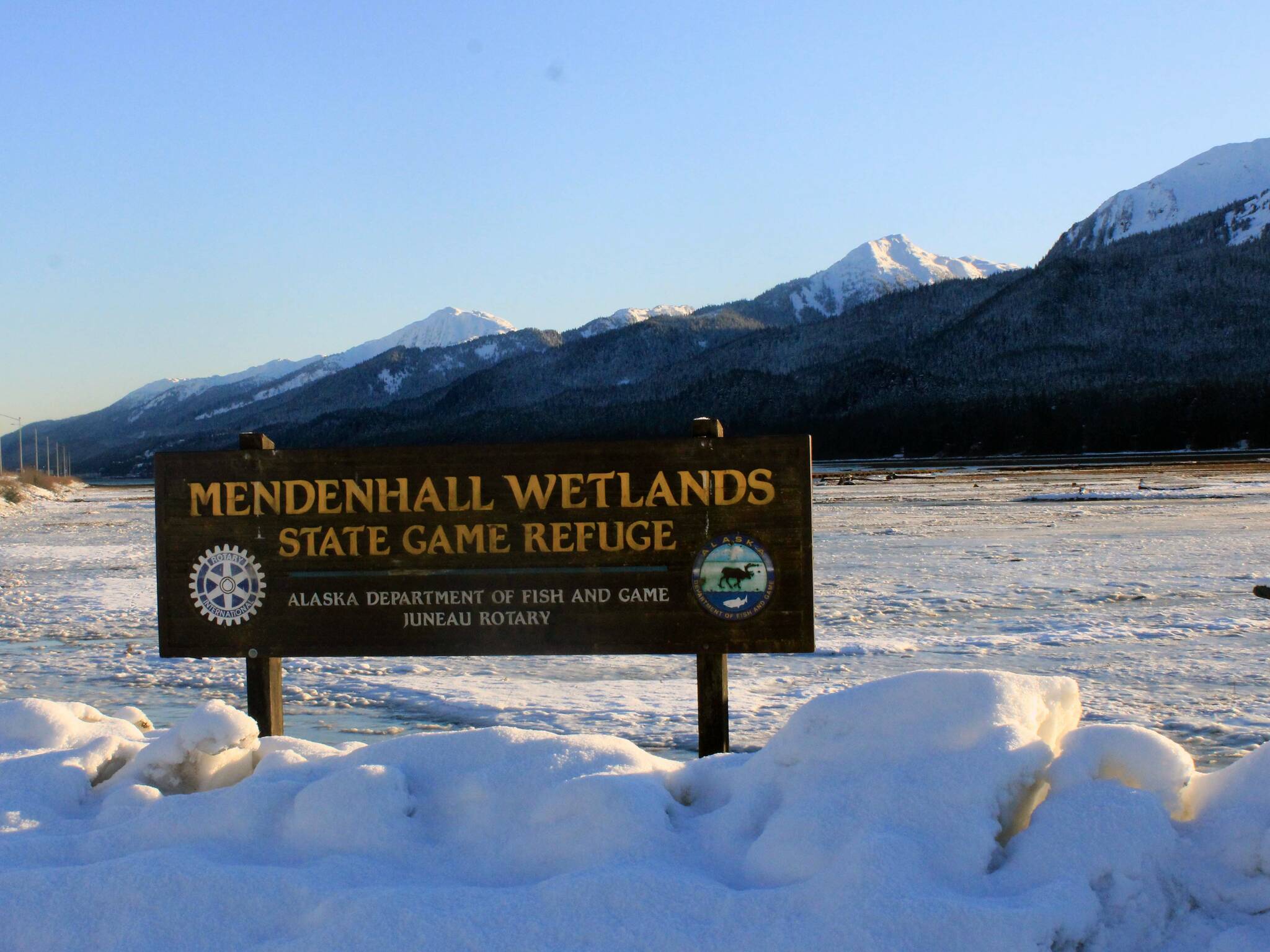This season has delivered for fans of winter weather, and more snow and cold is on tap for Juneau this week.
According to Cody Moore, meteorologist for the National Weather Service in Juneau, a weak front setting up over the panhandle coupled with a cold system over northwest Canada is creating the perfect setup for a stream of moisture fueled by the Gulf of Alaska to fall on the City and Borough of Juneau.
Falling temperatures Monday and Tuesday mean the capital city will likely see snow rather than rain at least for the first portion of the event.
Moore said the storm could drop 4 to 8 inches of snow on the area Tuesday night into Wednesday, before heavy rain and warming temperatures return later in the week.
“Tuesday will start mainly dry,” Moore said, adding that temperatures that started dropping Monday will continue to fall Tuesday. He said to expect temperatures in the mid-20s when the snow begins to fall.
“The snow will start Tuesday night and continue on Wednesday with the heaviest Tuesday night through Wednesday morning before it tapers off, then turns to rain,” he said.
Moore said meteorologists at the Juneau weather station are still refining the forecast and don’t know for sure when the change over from snow to rain will happen.
[Much of Alaska is a childcare desert]
“It could become an icy mess,” Moore said.
Moore said that the snow that will fall is likely to be wet, heavy and difficult to move.
“Take care of it sooner than later,” Moore advised for those who need to shovel driveways, decks and walks. “Travel will be difficult Wednesday morning.”
Wet January
This storm follows an exceptionally wet January that included back-to-back snowstorms followed by a warming that delivered rain and created icy roads–closing schools, businesses and offices.
“It’s not official yet, but we’ve had one of the wettest January’s on record,” Moore told the Empire in a Monday afternoon phone interview.
Moore explained that meteorologists determine the liquid precipitation measure by melting the snow to see how much liquid it holds.
According to Moore, 81.6 inches of snow has fallen at the Juneau International Airport as of mid-day Monday.
“That’s our average snowfall for the season,” Moore said, adding that if the winter season ended today, this would be the city’s 13th snowiest season since officials started keeping records in the 1940s.
[A different kind of cabin fever]
“If we already have our seasonal average in three months, that’s pretty impressive,” Moore said.
In addition, Moore said that the area around the airport gets slightly less snow than other parts of town — such as downtown, Douglas Island and the back of the Mendenhall Valley, where the most snow typically falls.
Moore said that 118 inches of snow has already fallen near the weather service office, located in the back of the Mendenhall Valley — making this the second snowiest season since forecasters started keeping records for the area about 20 years ago.
How to prevent frozen water pipes
As temperatures dip this week, water pipes could be at risk of freezing and bursting.
“If your water pipes are not properly insulated or maintained, you could be at risk of being without running water during a freeze-up or a pipe bursting and causing flooding and damage to your home or business,” read a Monday morning news release from CBJ.
To prevent frozen water pipes, CBJ suggests:
— Leaving a pencil-thin trickle of water running in the sink to keep water circulating
— Ensuring crawl space vents are closed and pipes are properly insulated
— Checking all heat tapes to be sure they are plugged in and functioning
— Turning off hose bibs, disconnecting any hoses, and making sure they are adequately insulated
If you encounter a problem and need your water turned off, call 907-586-0393 Monday-Friday, 8 a.m. to 4:30 p.m. or 907-586-2165 after hours. In an emergency, call 907-586-0393.
City workers can’t thaw frozen pipes, but a plumber or contractor may be able to help, according to CBJ.
• Contact reporter Dana Zigmund at dana.zigmund@juneauempire.com or 907-308-4891.

